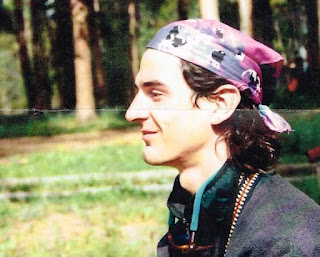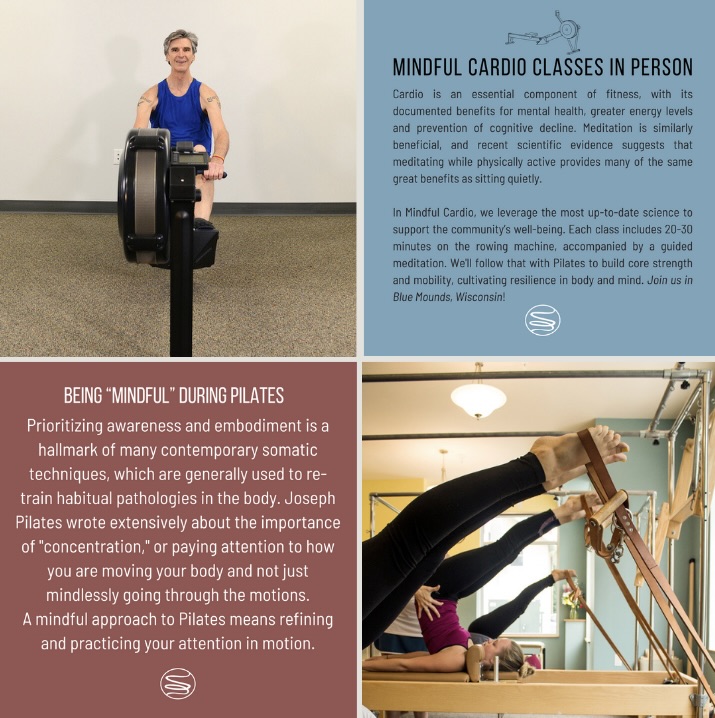Stuff I Learned - Thoughts on Heat Therapy (and Discomfort)
I cannot claim an affinity for sauna based on heritage, any more than I can claim a fondness for Citroen cars or BMW motorcycles based on heritage. Despite my name, I'm a mutt of European ancestry; I'm no more Scandinavian than I am anything else. Despite my lack of ancestral inclination to sauna, however, I've always been drawn to the intense heat of sauna, sweat lodge and hot springs.
When I was a student-athlete at the University of Minnesota, my track coach encouraged sauna to expedite recovering from hard workouts. Even at that young age, I eagerly followed coach's advice, at least when it involved sauna. Upon graduation, I immediately embarked on a years-long, back-to-nature period that included lots of sauna (albeit wearing less clothing than during my varsity athlete days!)
Once I settled in the rural hill country outside of Madison 25+ years ago, my sauna-philia only increased. From September thru April of most years, I sought out every opportunity to embrace the intensity of heat and sweat. When I renovated the old Blue Mounds Hardware building into a home/studio, one of my highest priorities was installing a sauna. To this day, I sauna at least once per week throughout Wisconsin's many months of cold weather. I've long had a sense that sauna was good for me, though I haven't had much evidence to support this sense. Last week, however, I attended an interesting lecture that provided compelling scientific evidence that heat therapy (a more global category that includes sauna, hot tub, etc.) does more than just feel good and refreshing.
As part of my graduate work in the Kinesiology Department at the University of Wisconsin - Madison, I attend weekly departmental lectures. Last week's lecture was among the highlights of the semester, as Dr. Christopher Minson discussed the myriad benefits of heat therapy. (Not only was the talk engaging, Dr. Minson hails from Eugene, Oregon... one of my favorite places!)
I'm more of a neural guy, and the talk quickly went over my biochemical head. Despite quickly losing track of the specific metabolic pathways that are positively impacted by heat therapy, I came away with a deep appreciation of how heat exposure appears to be beneficial for metabolic and vascular health. Really beneficial! In fact, Dr. Minson broached the possibility that heat-therapy may provide many of the same benefits that exercise does.
While I find these results interesting and encouraging, the benefits of heat therapy (and rationalizing my potentially excessive fondness for sauna) were not my primary takeaway from this lecture. My primary takeaway came from a bigger point that I think Dr. Minson was trying to make, and one that I regularly reflect upon; our cultural/societal emphasis on comfort may not be all that it is cracked up to be.
Humans have a knack for changing their environment in ways that reduce discomfort. While I'm quite fond of clean water and warm places in which to hunker down in the cold weather, it seems as though reducing exposure to discomfort has negatively impacted our physical health. While I've let go of fuzzy, romantic notions of returning to nature (I tried that during my ersatz hippie days... not so fun), it does seem as though regular exposure to heat, cold and going hungry are very beneficial for health. Awhile back I wrote about my dietary choices, and in the intervening time I've come across even more evidence supporting the benefits of calorie restriction, intermittent fasting and otherwise turning toward discomfort as a means of realizing optimal health.
During my longer runs this past week, I've been reflecting on the ways in which I turn away from discomfort. Part of the contemplative path is learning and relearning how to lean into difficulty, and I'm still a beginner. Comfort is seductive, and I often default into its numbing embrace. Since attending last week's seminar, I've been observing how I absentmindedly reach for a second helping of food, or delay getting out of bed in the morning when the room feels too cold. In the coming weeks, I look forward to more deeply observing and reflecting on these habits.
As I've learned from my years of Dharma practice; we have the potential to turn poison into medicine.
When I was a student-athlete at the University of Minnesota, my track coach encouraged sauna to expedite recovering from hard workouts. Even at that young age, I eagerly followed coach's advice, at least when it involved sauna. Upon graduation, I immediately embarked on a years-long, back-to-nature period that included lots of sauna (albeit wearing less clothing than during my varsity athlete days!)
 |
| I've long been partial to hot springs, sweat lodges and saunas. |
As part of my graduate work in the Kinesiology Department at the University of Wisconsin - Madison, I attend weekly departmental lectures. Last week's lecture was among the highlights of the semester, as Dr. Christopher Minson discussed the myriad benefits of heat therapy. (Not only was the talk engaging, Dr. Minson hails from Eugene, Oregon... one of my favorite places!)
I'm more of a neural guy, and the talk quickly went over my biochemical head. Despite quickly losing track of the specific metabolic pathways that are positively impacted by heat therapy, I came away with a deep appreciation of how heat exposure appears to be beneficial for metabolic and vascular health. Really beneficial! In fact, Dr. Minson broached the possibility that heat-therapy may provide many of the same benefits that exercise does.
While I find these results interesting and encouraging, the benefits of heat therapy (and rationalizing my potentially excessive fondness for sauna) were not my primary takeaway from this lecture. My primary takeaway came from a bigger point that I think Dr. Minson was trying to make, and one that I regularly reflect upon; our cultural/societal emphasis on comfort may not be all that it is cracked up to be.
Humans have a knack for changing their environment in ways that reduce discomfort. While I'm quite fond of clean water and warm places in which to hunker down in the cold weather, it seems as though reducing exposure to discomfort has negatively impacted our physical health. While I've let go of fuzzy, romantic notions of returning to nature (I tried that during my ersatz hippie days... not so fun), it does seem as though regular exposure to heat, cold and going hungry are very beneficial for health. Awhile back I wrote about my dietary choices, and in the intervening time I've come across even more evidence supporting the benefits of calorie restriction, intermittent fasting and otherwise turning toward discomfort as a means of realizing optimal health.
During my longer runs this past week, I've been reflecting on the ways in which I turn away from discomfort. Part of the contemplative path is learning and relearning how to lean into difficulty, and I'm still a beginner. Comfort is seductive, and I often default into its numbing embrace. Since attending last week's seminar, I've been observing how I absentmindedly reach for a second helping of food, or delay getting out of bed in the morning when the room feels too cold. In the coming weeks, I look forward to more deeply observing and reflecting on these habits.
As I've learned from my years of Dharma practice; we have the potential to turn poison into medicine.



Comments